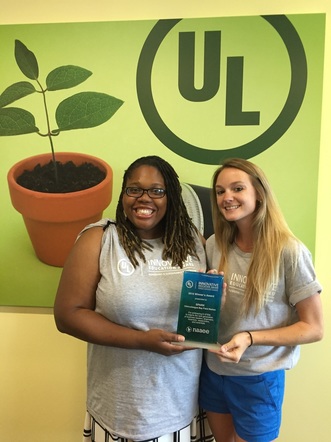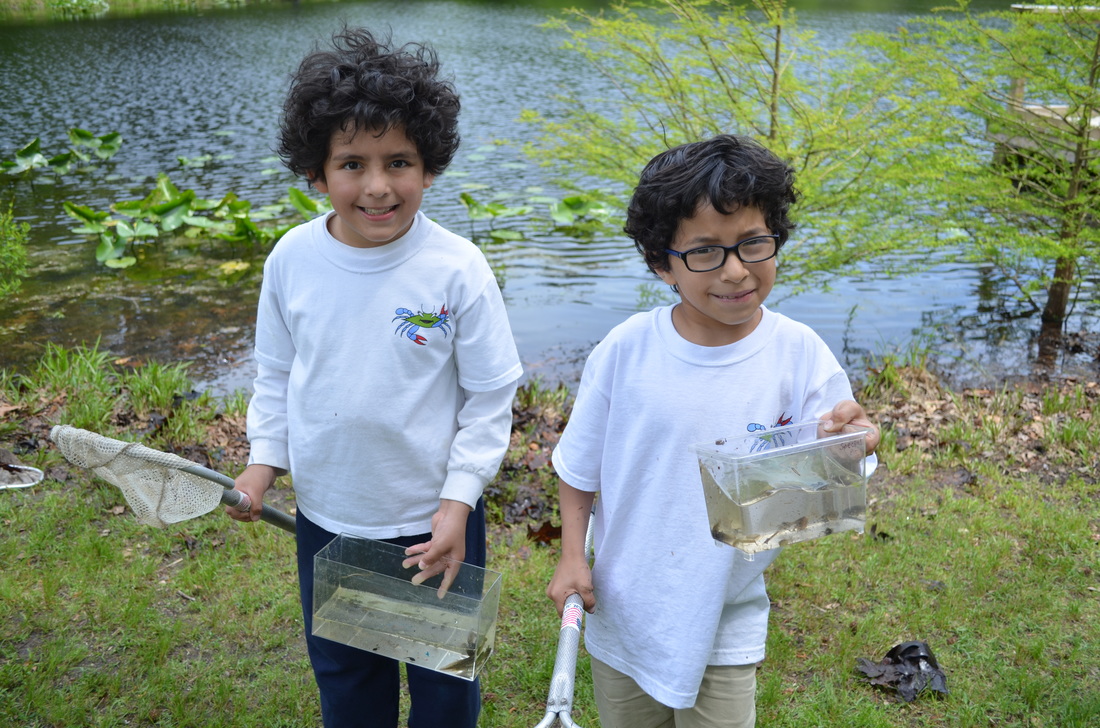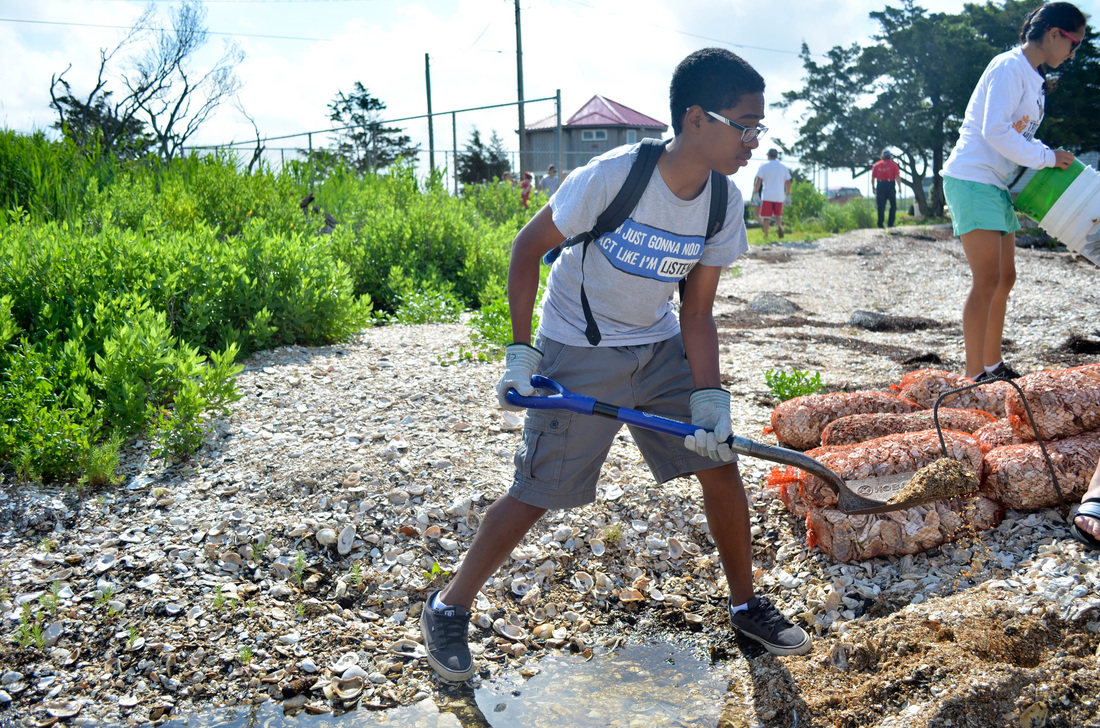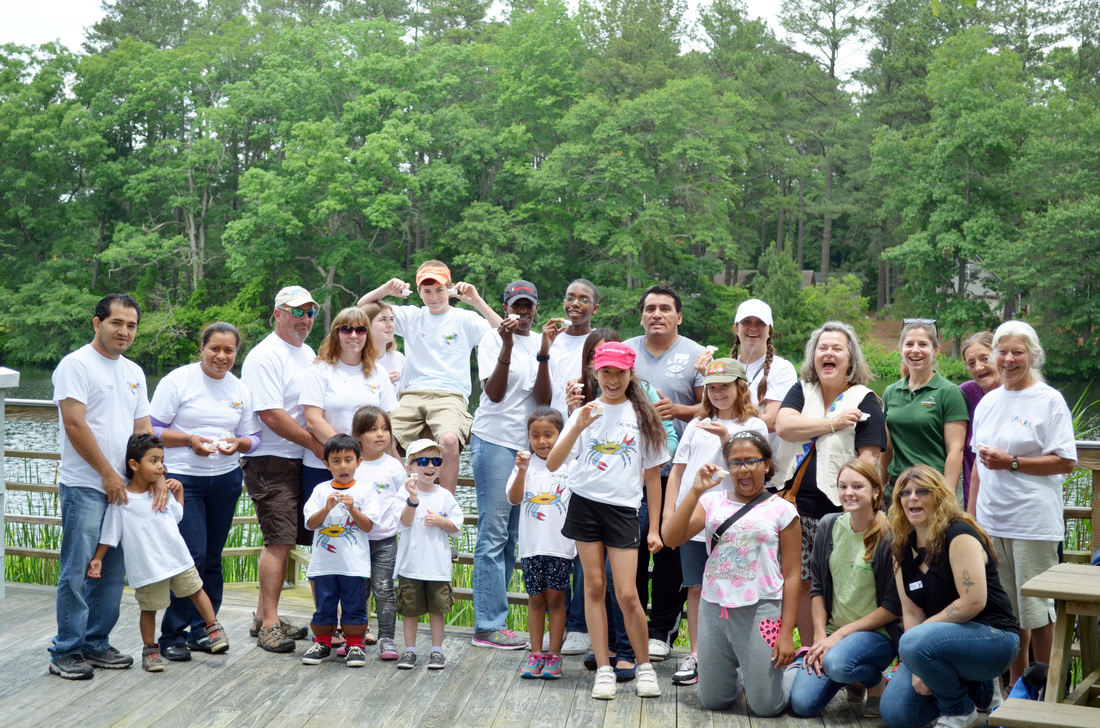SPARK is a completely free program for families in Accomack County to learn and grow together through outdoor experiences. There are three tiers of the SPARK Program: SPARK Nature Detectives (families with children in PreK-5th grade) SPARK Creekwatchers (families with children in middle school), and SPARK Living Shoreline Team (families with children in high school). CBFS also offers an internship program for local high school teens during the summer called the Sea STAR Steward program.
During all SPARK programs we welcome siblings of all ages, as we believe that learning as a family is a key component in building a well-rounded community.
During all SPARK programs we welcome siblings of all ages, as we believe that learning as a family is a key component in building a well-rounded community.
|
Our 2019 Program Schedule will be available soon. In the meantime, browse through last years activities. 2019's will likely be very similar!
2018 SPARK Events
|
SPARK Creekwatchers Family Learning/Family Fun Days History of SPARK For more information, contact: Community Outreach Dept [email protected] or by calling (757) 824-5636. |
IN THE NEWS:
Chincoteague Bay Field Station’s SPARK program in Virginia named one of five winners in UL Innovative Education Award Program to Advance Environmental and STEM Education

In collaboration with North American Association for Environmental Education (NAAEE), program champions excellence and innovation in youth programming that uses the environment as pathway to STEM learning
NORTHBROOK, IL and WASHINGTON, D.C. [August 17, 2016] – Chincoteague Bay Field Station’s SPARK program (Shore People Advancing Readiness for Knowledge) in Wallops Island, Virginia (www.cbfieldstation.org/SPARK), which fosters environmental science interactions outside the classroom between parents and children through an intergenerational and scaffolding approach (progressively incremental) to E-STEM learning, has been named one of the five winners in the second annual UL (Underwriters Laboratories, Inc.) Innovative Education Award program. The organization will receive a grant of $25,000.
By using science-based solutions to tackle environmental issues that affect the eastern shore region of Accomack County in Virginia, SPARK serves a diverse community in which participants range in age from five to 65 and often involve multiple generations of families learning simultaneously. A large majority of the population served by SPARK identifies either as Black, Hispanic, or Latino.
Developed in collaboration with the North American Association for Environmental Education (NAAEE), the UL Innovative Education Award (ulinnovationeducation.naaee.net) was open to nonprofit organizations in the U.S. and Canada that serve to motivate K-12 students about science and research through E-STEM programming and education about the environment. The intent is to support innovative organizations that are inspiring future researchers, scientists, and problem solvers.
Four other grants were awarded, including a top prize of $100,000. An additional $25,000 grant was awarded along with two others of $50,000 each. All five winning teams from the UL Innovative Education Award (ULIEA) program will meet in North Carolina’s Research Triangle Park, Aug. 17-19 on the UL campus for the second ULIEA kickoff meeting and leadership summit.
“We were impressed by how SPARK encourages youth to present the source of the problem and implications of the problem to various audiences and how they enabled youth to advocate for feasible solutions,” Cara Gizzi, Director of Public Safety Education and Outreach says. “The judges noted that this year’s winning programs demonstrated the lasting returns on investing in sustained contact with the learners over months as well as years. SPARK and the other winners are the ideal ‘deep learning’ programs that offer effective, meaningful, and measurable engagement in STEM learning that can be readily tracked over time.”
The UL Innovative Education Award proposals demonstrate the values of service learning and a bottom-up approach that includes as many diverse voices, among the core features of the goals for the NAAEE’s ongoing National Project for Excellence in Environmental Education, according to Christiane Maertens, NAAEE’s Deputy Director. “Building on the strengths of service learning, these projects show the impact of the ways people are experimenting with experiential learning,” Maertens says. “Youth are participating in projects that offer tangible benefits to their communities and that learning is directly associated with creating that benefit. These projects also represent many voices including urban, religious, indigenous, people of color, elderly, and women-led populations. For youth, this means achieving a more complex understanding of environmental issues, critical thinking, process and problem solving and seeing how STEM can meet the needs of the community.”
NORTHBROOK, IL and WASHINGTON, D.C. [August 17, 2016] – Chincoteague Bay Field Station’s SPARK program (Shore People Advancing Readiness for Knowledge) in Wallops Island, Virginia (www.cbfieldstation.org/SPARK), which fosters environmental science interactions outside the classroom between parents and children through an intergenerational and scaffolding approach (progressively incremental) to E-STEM learning, has been named one of the five winners in the second annual UL (Underwriters Laboratories, Inc.) Innovative Education Award program. The organization will receive a grant of $25,000.
By using science-based solutions to tackle environmental issues that affect the eastern shore region of Accomack County in Virginia, SPARK serves a diverse community in which participants range in age from five to 65 and often involve multiple generations of families learning simultaneously. A large majority of the population served by SPARK identifies either as Black, Hispanic, or Latino.
Developed in collaboration with the North American Association for Environmental Education (NAAEE), the UL Innovative Education Award (ulinnovationeducation.naaee.net) was open to nonprofit organizations in the U.S. and Canada that serve to motivate K-12 students about science and research through E-STEM programming and education about the environment. The intent is to support innovative organizations that are inspiring future researchers, scientists, and problem solvers.
Four other grants were awarded, including a top prize of $100,000. An additional $25,000 grant was awarded along with two others of $50,000 each. All five winning teams from the UL Innovative Education Award (ULIEA) program will meet in North Carolina’s Research Triangle Park, Aug. 17-19 on the UL campus for the second ULIEA kickoff meeting and leadership summit.
“We were impressed by how SPARK encourages youth to present the source of the problem and implications of the problem to various audiences and how they enabled youth to advocate for feasible solutions,” Cara Gizzi, Director of Public Safety Education and Outreach says. “The judges noted that this year’s winning programs demonstrated the lasting returns on investing in sustained contact with the learners over months as well as years. SPARK and the other winners are the ideal ‘deep learning’ programs that offer effective, meaningful, and measurable engagement in STEM learning that can be readily tracked over time.”
The UL Innovative Education Award proposals demonstrate the values of service learning and a bottom-up approach that includes as many diverse voices, among the core features of the goals for the NAAEE’s ongoing National Project for Excellence in Environmental Education, according to Christiane Maertens, NAAEE’s Deputy Director. “Building on the strengths of service learning, these projects show the impact of the ways people are experimenting with experiential learning,” Maertens says. “Youth are participating in projects that offer tangible benefits to their communities and that learning is directly associated with creating that benefit. These projects also represent many voices including urban, religious, indigenous, people of color, elderly, and women-led populations. For youth, this means achieving a more complex understanding of environmental issues, critical thinking, process and problem solving and seeing how STEM can meet the needs of the community.”
ABOUT SPARK
SPARK, Shore People Advancing Readiness for Knowledge, is an innovative, experiential family learning program based on nature and the environment. The program’s underlying philosophy is that learning together as a family outdoors can be fun and purposeful for all involved.
SPARK’s main objectives are to introduce children and their families to nature, to encourage learning outside of the classroom, and to foster positive learning interactions between parents and children. SPARK's main programs include:
SPARK’s main objectives are to introduce children and their families to nature, to encourage learning outside of the classroom, and to foster positive learning interactions between parents and children. SPARK's main programs include:
- SPARK Nature Detectives (families with children in Pre-K-5th grade)
- SPARK Creekwatchers (families with children in middle school)
- SPARK Living Shoreline Team (families with children in high school)






